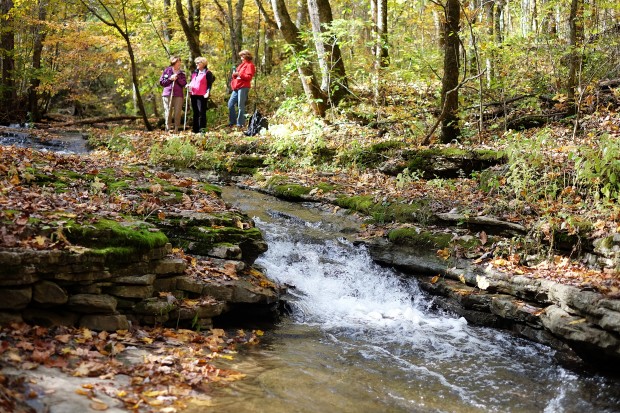Recreation and Tourism ZOTA

Floracliff Nature Sanctuary in Fayette County
Through our efforts at government and beyond, Lexington can become the model for sustainable growth, by connecting and balancing its vibrant city with its unique and productive Bluegrass farmland.
In furtherance of this mission, Fayette has submitted recommendations for Planning Commission’s consideration and adoption in re: ZOTA 2014-4 & SRA 2014-1: Recreation and Tourism Land Uses.
This legislation aims to introduce recreation and tourism uses primarily in the rural area of Fayette County, in a fashion that advances agriculture, environmental stewardship, and public access.
This is a complex, yet essential task.
To strike a successful balance between these two seemingly competing interests, we must strengthen the foundation upon which our brand is built—our signature agricultural and environmental assets—while introducing public access opportunities that build upon, and not undermine, this foundation. Protecting the ag-intent of our rural zones and preserving our unique natural resources are essential to achieving this vision.
Pursuant to achieving this policy goal, Fayette Alliance conditionally supports ZOTA 2014-4 & SRA 2014-1: Recreation and Tourism Land Uses, provided several key revisions are incorporated into the legislation. They are summarized below, and please read the full statement for additional details:
1. Definitions. Farm Gift Shops and Homegrown Restaurants…AG-Nexus Required To Preserve Ag-Intent of applicable zones.
- Farm gift shops and homegrown restaurants must have an agricultural-nexus between the products sold and the subject farm. Work is needed to determine a feasible and enforceable definition for “ag-nexus”, to legitimize the “ag” aspect of tourism uses in the rural area, and the A-R zone in particular.
2. Protect the AG-Intent of the Agricultural-Rural Zone
- Commercial vs. Non-Commercial recreational uses are an important distinction. For-profit motives increase frequency and environmental impacts, therefore they should be regulated differently
- Support non-commercial hiking and biking trails on public rights of way along scenic rural roads, as a means of basic infrastructure. “Pay to play” is not an equitable or holistic approach to establishing multi-use trails in the rural area.
- Do not support active-commercial recreational uses such as zip lines, canopy tours, recreational outfitters, kayak launching sites, and campgrounds in the A-R zone. These uses undermine the agricultural intent of zone, and are disruptive to neighboring farm operations. Uses are better suited to B-1, A-U, A-B, and A-N zones if properly regulated.
- Support farm gift shops only if located on working farms that are giving farm tours. Stand alone shops without ag-connection challenge intent of zone and may introduce troubling commercial activity that disrupts neighboring farm operations and undermines our Bluegrass brand.
3. Commercial Recreation May be Allowed Outside Core Agricultural Areas, such as the rural B-1, A-U, A-B, and A-N Zones, provided Natural Resources of Subject Sites are Protected.
- Support commercial recreation, adventure tourism, and ecotourism uses in zones, provided the natural resources of the subject property are protected. An environmental surety bond may be required if extenuating circumstances are present on environmentally sensitive lands.
- The Planning Commission should appoint a work group to explore the use and application of such bonds. Ostensibly, a bond requirement would demonstrate that the business operator is well financed and capable of stewarding our most precious resources, and also able to clean up the site in the event the use ceases for any reason. If Lexington requires such bonds for development projects in the heart of downtown, Lexington can and should do it for our most remote and sensitive natural resources throughout the rural area.
4. New non-commercial recreation and ecotourism programs should be explored on our 2,800 acres of rural parkland in Fayette County. These lands could accommodate a community need without altering our Zoning Ordinance.
ZOTA 2014-4 & SRA 2014-1 is a most serious undertaking that, if responsibly done, will benefit Lexington-Fayette County for years to come.
Learn more about this complex issue:
Read the proposed Text-Amendment

